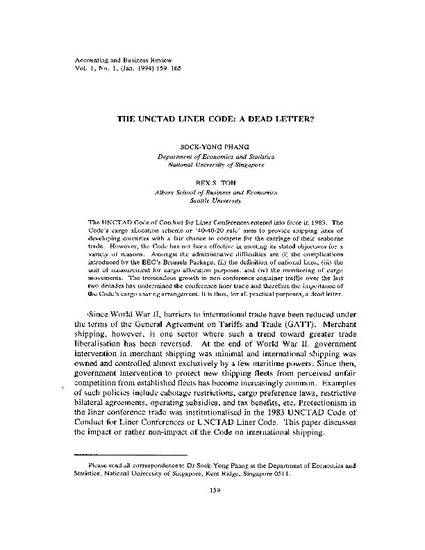
The UNCTAD Code of conduct for Liner Conferences entered into force in 1983. The Code's cargo allocation scheme or '40-40-20 rule' aims to provide shipping lines of developing countries with a fair change to compete for the carriage of their seabourne trade. However, the Code has not been effective in meeting its stated objectives for a variety of reasons. Amongst the administrative difficulties are (i) the complications introduced by the EEC's Brussels Package, (ii) the definition of national lines, (iii) the unit of measurement for cargo allocation purposes, and (iv) the monitoring of cargo movements. The tremendous growth in non-conference container traffic over the last two decades has undermined the conference liner trade and therefore the importance of the Code's cargo sharing arrangement. It is thus, for all practical purposes, a dead letter.
Available at: http://works.bepress.com/sockyong_phang/44/
